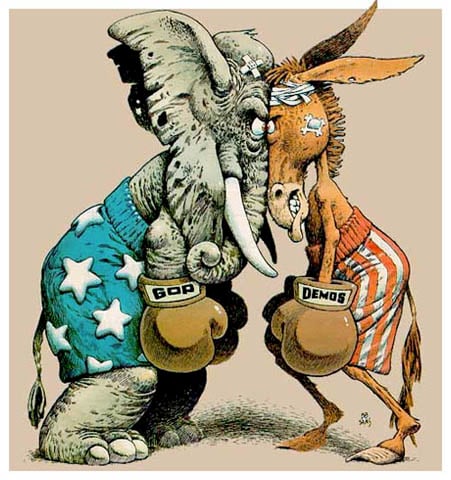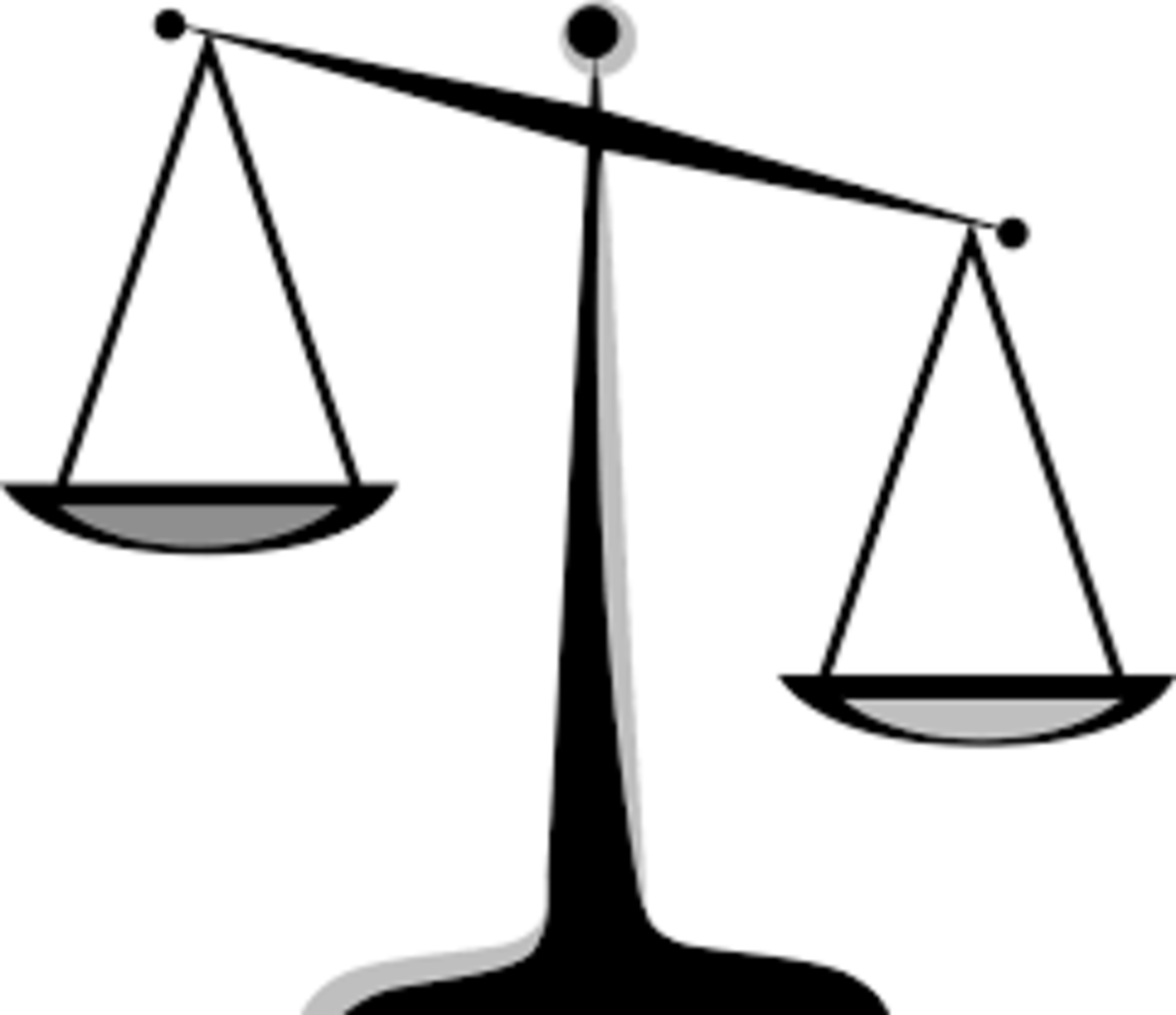Proactive Citizenry and the Political Gambit

“It is accepted as democratic when public offices are allocated by lot (sortition); and as oligarchic when they are filled by election.” –Aristotle
"Politicians are like diapers. They both need changing regularly and for the same reason." -Author Unknown
A thousand years of history has shown that aristocracy always transforms into oligarchy. In our case it is a particularly deceptive flavor of oligarchy known as plutocracy. It is deceptive because it is enchanting. It puts forth the false idea that everybody can get rich as long as they work hard; when, really, everybody works hard so that the rich can remain rich. Institutions are the problem, not people. The rich people who make up the few that rule are not evil or corrupt, necessarily; they are simply institutionalized and blinded by an institution that is keeping them fat and happy.
Ours is an institution set up in a way that deceptively shouts democracy out the front of its mouth while whispering plutocracy out the side of its mouth. It’s an institution that conditions its citizens into becoming pseudo-slave workers for tyrannical mega-corporations. This keeps the ruling rich safe and secure in their power, and keeps everybody else working hard toward the illusion of being rich someday. But security in power leads to tyranny in nature. There is no way around it except to introduce an institution that checks and balances itself. The battle here is against an abstraction, not people. This type of battle requires a different tactic. The answer is not to win, or to give up, or to seek revenge, but to create something new.
Our current plutocratic oligarchy is a representative government, a pseudo-democracy. The only thing it seemingly has in common with true democracy is equality. But the type of equality preached by representative government is pseudo-equality. It is based upon equity not equality. It is formal. It is not real. It is, in fact, completely fake. It is based upon auxiliary details, and not at all on essentials. And, even worse, it keeps its citizens lazy, fearful, and ill-informed so that it can maintain control. People living comfortable fear-based lives are easy to manipulate and control, because there is no reason for them to become active in the political process. Vote-by-election gives the people an excuse to be lazy, bipartisan-dependent sycophants.
True democracy is Athenian democracy: assembly of the people, NOT assembly of representatives. The core, indeed the heart of true democracy, is assembly of the people: one heart; one voice; one vote. Democracy by assembly gives all citizens the chance to become an assembly member, have their voice heard, and have their name put into a lottery for sortition. What we need is vote-by-sortition rather than vote-by-election. With elections, we choose our masters. With sortition, we say, “No! We have no need for masters.” I’m not saying we should become exactly like the old Athenian government. I’m saying we should use it as a model for healthy governing. Why not take the best of Athenian democracy (sortition) and mash it with the best that our current system has to offer (free-market ego-moral capitalism)?
Political equality is the goal here. In order to attain true political equality there must be a sortition process that leads to cyclical political amateurism, thus avoiding the corruption of power. Sortition allows for a rotation of duties and avoids entrenchment. This is essential. This is the nucleus of a true democracy. Sortition trumps election because there are checks & balances based upon transparent thought as opposed to the blind entrenchment of elections. With elections there is inconsistency, there is no place for error-correction, and thus there is disequilibrium and inequality. With sortition there is consistency, there is a place for error-correction, and thus there is equilibrium and equality. The difference between sortition-based democracy and election-based democracy is precisely the difference between, on the one hand, the peaceful, voluntary exchange of ideas, and on the other, the manipulative, greedy expropriation of ideas.
The best part about progressing toward a sortition-based democracy is that it transforms passive citizens into proactive citizens. This is because in a sortition-based democracy everyone has a voice. Anybody can be drawn to be a political force in their region, state, or country. When you actually allow people to speak, to have a say, to help keep the institution accountable, you make them want to try harder. You make them want to be proactive. They have a sense of duty because they are rewarded with a sense of belonging. They say to themselves, “I can really make a difference because my peers are actually listening.” Whereas when you have a government that acts as if your words don’t matter, that they will make no difference, these people will not try harder. They will not be proactive. They have a sense of duty only by waiving money in front of them, like a carrot in front of a donkey. They say to themselves, “Nobody wants to listen to me. What’s the point in being active since I won’t be able to make a difference anyway?” An open, transparent institution, with a platform for an assembly of the people, creates proactive citizenry.

Healthy Politics is proactive citizenry. And you can only achieve proactive citizenry through a process of duty rotation and sortition that allows for political amateurism. This brings about a new vision of politics, where politics is healthy, vibrant, and an integral aspect of the human condition. Indeed where politics is ubiquitous and is a side-effect of healthy citizenry. The problem with elections is that they allow the rich to buy power and manipulate the system which leads to partisanship and political professionalism. Meanwhile the average person is politically blind and stagnated. Partisan politics is a prison of the mind, imprisoning thought, or at least pigeonholing it into nontransparent bipartisanship. Political professionalism is a prison of power that nobody is immune to. A democracy practicing sortition, on the other hand, allows the people to expiate their power. Sortition frees the mind and embraces thought because all political ideas have a chance to rise to the top, and the best ideas usually will.
The concept of political amateurism is subsumed by the archetype of the New-layman. A new-layman is a person who completes the cycle of mastery. The cycle of mastery begins with the Cycle of the Layman: the cycle of ignorance and novelty; the foundation upon which all knowledge and experience is built. Then it moves to the Cycle of the Neophyte: the cycle of identification, observation, and adaptability. Then it moves to the Cycle of the Adept: the cycle of challenge and struggle. Then it moves to the Cycle of the Master: the cycle of expertise and understanding; of Willful Ignorance (Carse). And finally, it moves into the Cycle of the New-layman: the cycle of holistic thinking, self-actualization, and Higher Ignorance (Carse). Here, one has trumped the Master Complex: a particularly nasty flavor of self-bias regarding personal mastery riddled with conceit.
Those traveling the Cycle of the New-layman reject the imagined boundaries that falsely divide people and ideas, and instead work to expand horizons. Because they have no illusions regarding heaven and hell, New-laymen are happy and content. They are free from Man’s fear of petty gods and even pettier laws. They love universally and unconditionally. They have created for themselves a freedom for new creating.
Politically speaking New-laymen make prolific political amateurs. They are realistic and pragmatic. They know they’re not perfect. They easily embrace moral fallibilism, understanding the need for open-ended questioning and error-correction. They protect dissident views and whistleblowers, realizing that dissidence leads to creative accountability and prevents power from corrupting. They are harbingers of epistemological modesty, realizing that wisdom begins with NOT ignoring our ignorance, and being aware of our fallibility. They realize that de-synchronization (between political and economic power) solves the problem of a political regimes propensity toward tyranny.
The occupy movement currently sweeping the world consists of many New-laymen. People from all walks of life, from all professions, are merging for one all-inclusive cause: the separation of power and politics. This movement is fascinating in its propensity toward true democracy, especially with its focus on the ekklesia, the general assembly. The way in which this movement conducts its general assembly, peacefully, horizontally and non-coercively, is a very powerful thing, and a force to be reckoned with. This movement, with its cast of new-laymen, is re-writing the way democracy functions; mixing the old Athenian political values of assembly, consensus, autonomia and freedom with pages torn from books the likes of which Alinsky, Gandhi, MLK, and Thoreau have written. With one single voice they call out, “We prefer dangerous freedom over peaceful slavery.”
And so we should also prefer sortition-based democracy over election-based democracy. Election-based democracy has made us lazy citizens of a plutocratic state, filling us with the false-hope of someday being one of the members of the plutocratic elite. But we won’t. And we are slowly waking up to that fact. Sortition-based democracy, with a return to assembly, has the potential to make us proactive citizens once again. “The world will not be destroyed by those who do evil,” Albert Einstein said, “but by those who watch them without doing anything.” Don’t be idle. Don’t be inert. Don’t be just another passive citizen. Rise up, complete the cycle of the New-layman, and become a proactive citizen.








